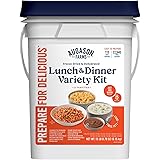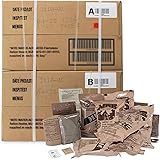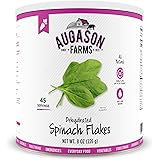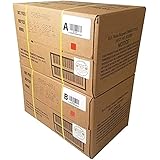1. Understanding Preparedness
Defining Preparedness
So, what exactly does preparedness mean? For me, it’s about being ready for unexpected events while maintaining my usual lifestyle. It’s that good balance where I feel secure but still enjoy life. Preparedness doesn’t have to mean living in a bunker! It’s about thinking ahead without turning into a hermit.
I’ve learned that preparedness isn’t just about stocking up on supplies; it’s also about having the right mindset. This means being aware of risks and knowing how to respond, which is something anyone can do from their own home, without feeling like they’re hoarding supplies. It’s all about striking that sweet spot where you feel secure yet comfy.
Ultimately, understanding preparedness can help reduce anxiety about the future. Instead of feeling overwhelmed, I can focus on practical steps that fit into my everyday life. By making it part of my routine, I ensure comfort isn’t sacrificed but instead enhanced through this sense of security.
2. Creating a Comfortable Emergency Plan
Personalizing Your Plan
When it comes to creating an emergency plan, I found it super helpful to tailor it to my own lifestyle. This means not just looking at general tips online but really thinking about what I do on a daily basis. Ask yourself: what are the likely emergencies I might face? For me, it was natural disasters, but for others, it might vary.
Once I identified potential threats, I could integrate solutions into my routine. For instance, if I’m at home during a storm, having flashlights and candles set up in cozy spots didn’t diminish my comfort level—it actually made my space feel safer and more inviting. I embraced the situation instead of dreading it!
Additionally, I included my family in the planning. When everyone knows the plan, it creates a communal feeling rather than panic. We even make a family night out of reviewing the plan, turning a potentially scary subject into something fun and engaging. This combination of preparation and comfort reassures me that we’re ready, no matter what.
3. Building a Preparedness Kit that Suits You
Essential Items vs. Extras
Building a preparedness kit was a game-changer for me. But here’s the kicker: I didn’t just go for the “typical” items, like canned food and first aid kits. Instead, I thought about what made me comfortable. I mean, if I’m going to be lounging during an emergency, I want my go-to snacks and favorite games in there!
The essentials are great and all, but adding personal touches made my kit feel less like a chore and more like a safety net. I included comfy blankets, a deck of cards, and even some books. That way, it doesn’t feel like I’m preparing for a disaster but rather creating a cozy retreat that’s useful whenever needed.
== > What if ... Get a FREE Subscription to PREPARE
In the end, the kit reflects my interests and personality while still being practical. It’s super important not to overlook the psychological aspect of preparedness, as having something familiar can bring comfort during a time of potential stress.
4. Finding Community in Preparedness
Join Local Groups
If there’s one thing I’ve found invaluable in my journey, it’s connecting with others who are on the same path. Joining local preparedness groups or communities can be a fantastic way to share tips and encouragement, all while keeping things light and engaging. I often attend meetups where we swap ideas and get to know each other—it’s all about building that relational comfort!
Get Preparedness and Self-Reliance Tips. Subscribe!
These groups have a wealth of knowledge and, surprisingly, they’re often a lot of fun. I’ve met some awesome people who’ve taught me things I’d never thought of before. Plus, chatting about preparedness over a cup of coffee feels way more like a casual hangout than a doomsday prep session!
Involving my friends and family in these activities has also bolstered our collective peace of mind. When the community pulls together, you gain insights and resources that make the whole concept of preparedness much less daunting and a whole lot more enjoyable.
5. Adapting Mindfulness into Preparedness
Stress-Relief Practices
Mindfulness has played a pivotal role in my preparedness. Honestly, planning for the future can stir up a lot of anxiety, which is why I’ve infused some stress-relief practices into my routine. Simple things like meditation and deep breathing exercises help me stay centered and come back to clarity.
When I sit down and breathe deeply, I remind myself that being prepared doesn’t mean living in fear. Instead, it’s an opportunity to take control over my environment. Mindfulness allows me to appreciate the moment and find calm amidst chaos. It’s about cultivating a mindset where peace and preparedness coexist beautifully.
Another technique I use is journaling. It allows me to express my worries and thoughts about preparedness while also recognizing the positivity I’ve created in my life. By documenting what I have and what I’m doing, I can track progress and stay grounded. It’s all about keeping that balance between being aware of the “what-ifs” and savoring the now.
FAQs
1. Why is preparedness important?
Preparedness is key because it helps you navigate unexpected events calmly and efficiently. It reduces anxiety over time and builds confidence, knowing you are ready for various situations that may arise.
2. How can I personalize my emergency plan?
You can personalize your plan by considering your daily life and potential risks unique to your area. Involve your family, and make it fun by integrating comfortable items and routines everyone enjoys.
3. What should I include in my preparedness kit?
Include essential items like food and water, but also add personal comforts—like snacks, games, or books—that will keep spirits high while ensuring safety. Think about what makes you feel cozy and secure!
4. How does community help in preparedness?
Connecting with others fosters a sense of camaraderie and shared knowledge. Local groups can provide valuable resources, information, and emotional support that make the concept of preparedness less intimidating and more relatable.
5. Can mindfulness truly aid in preparedness?
Absolutely! Mindfulness helps manage stress and anxiety related to preparedness. By practicing mindfulness, you can stay focused and grounded, appreciating the present rather than getting lost in worries about the future.






